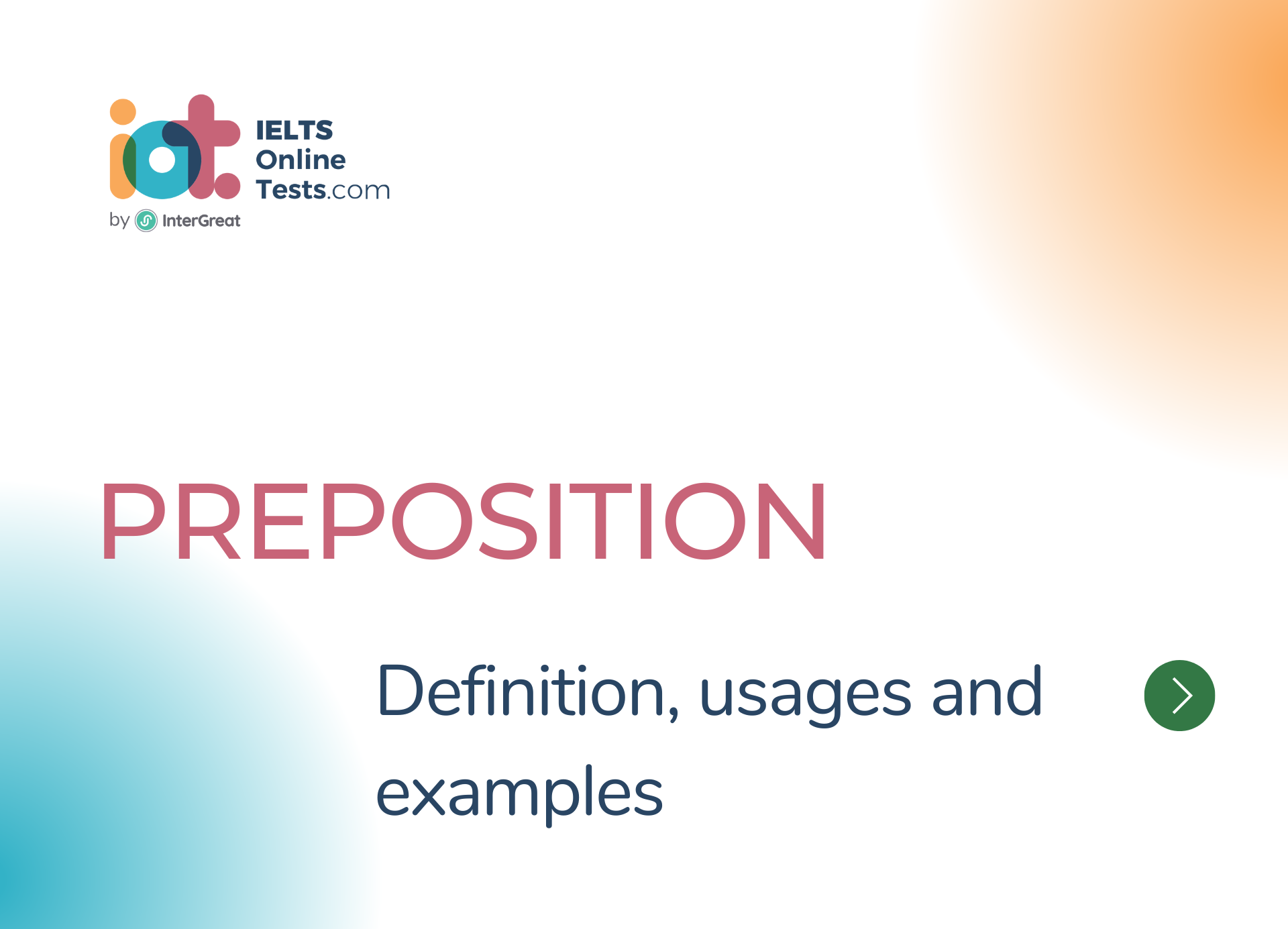
Preposition definition, usages and examples
Prepositions are an essential part of English grammar. They are words that show the relationship between a noun or pronoun and other words in a sentence. Prepositions often indicate location, direction, time, manner, or other relationships.
Here are the key points about prepositions:
Definition: Prepositions are words that connect nouns, pronouns, or phrases to other words in a sentence, expressing their relationship. They often indicate location, direction, time, manner, or other aspects.
Examples of Prepositions: Some common prepositions include "in," "on," "at," "under," "above," "beside," "from," "to," "with," "through," "about," "for," "during," "among," "between," and many more.
Usage: Prepositions are usually followed by a noun, pronoun, or noun phrase (called the object of the preposition). The object of the preposition can be a single word or a group of words functioning as a unit.
- Simple Prepositions: These are single-word prepositions, such as "in," "on," "at," "to," and "from."
- Compound Prepositions: These are formed by combining two or more words, such as "along with," "because of," "in front of," and "next to."
- Prepositional Phrases: These are phrases that consist of a preposition followed by its object and any modifiers. Example: "in the park," "on the table," "at the office."
Common Prepositions by Category:
- Location: in, on, at, under, above, below, inside, outside, between, among
- She is studying in the library.
- The keys are on the table.
- We will meet at the restaurant.
- The cat is hiding under the bed.
- The bird is flying above the trees.
- The temperature is below freezing.
- The children are playing inside the house.
- He is waiting outside the building.
- The book is between the two shelves.
- They shared the cake among themselves.
- Direction: to, from, into, out of, towards, away from, through, across
- She walked to the store to buy some groceries.
- He received a gift from his friend on his birthday.
- The cat jumped into the box and curled up for a nap.
- They ran out of the house when they heard the fire alarm.
- The hiker walked towards the mountain peak.
- The child moved away from the edge of the cliff for safety.
- They walked through the forest, following the trail.
- They swam across the river to reach the other side.
- Time: during, after, before, at, on, in, since, until, for
- She studied hard during the exam week.
- We will have dinner after the movie.
- Please submit your assignment before the deadline.
- The meeting will start at 9 a.m.
- I have a meeting on Monday.
- He will arrive in an hour.
- She has been working here since last year.
- They will stay at the hotel until the renovations are complete.
- He has been studying for three hours.
- Manner: with, by, through, like
- She went to the party with her best friend.
- The painting was created by a famous artist.
- They navigated through the dense forest to reach the waterfall.
- He runs like a cheetah, fast and agile.
- Possession: of, with
- The keys are on top of the table.
- She is holding a bouquet of flowers with her hand.
- Relationship: about, concerning, regarding
- They had a discussion about the upcoming project.
- The report raises important questions concerning the environmental impact of the project.
- She wanted to talk to you regarding your job application.
- Location: in, on, at, under, above, below, inside, outside, between, among
Idiomatic Prepositions: Some prepositions are used in specific idiomatic expressions and have fixed meanings, such as "by accident," "in spite of," "at the expense of."
Prepositions of Time and Place: Some prepositions are commonly used to express time or place relationships, such as "in," "on," "at," "from," "to," "before," "after," "under," "over," "beside," "between."
Prepositional Phrases as Adverbial or Adjectival: Prepositional phrases can function as adverbial phrases, modifying verbs, adjectives, or adverbs. They can also function as adjectival phrases, modifying nouns.
Understanding prepositions is important for constructing grammatically correct sentences and conveying accurate relationships between words and ideas. Familiarity with common prepositions and their usage will help in expressing location, time, direction, and other relationships effectively.




